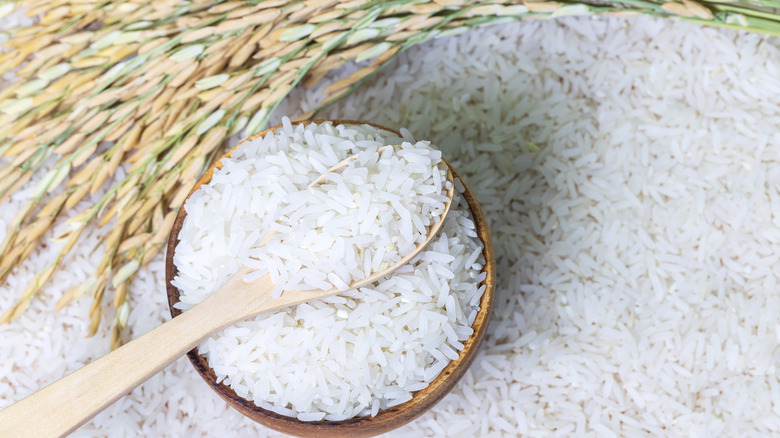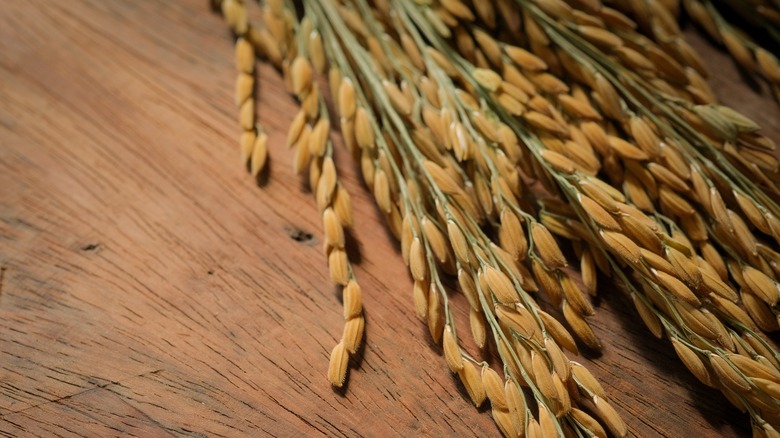For The Very First Time Ever Rice Has Been Successfully Grown In Space
Earth is not the only place where humans are looking to grow sustainable food sources. In order to go on long-term space missions people will need to have the ability to grow their own food, as China Daily explains it's not possible for astronauts to pack enough to sustain a mission to Mars. Recently, China made a big announcement that could potentially usher in a new era for space travel: Astronauts on board the Tiangong space station were able to successfully cultivate rice. The new success with rice has been years in the making, with Chinese astronauts attempting to on grow the staple food off-planet since 2016 (via USA Rice).
Chinese astronauts have had success cultivating food in space in the past, growing peas, dwarf wheat, and leafy greens on the International Space Station in 2014. What's significant about this most recent experiment is the end goal: to grow rice from seed through its full cycle to seeding. So far so good, the far the plants are prospering. Two types of rice were cultivated, a tall stalk and a dwarf variety, which both appear to have grown at the same rate as they would on earth (via University Today).
Space rice
When the seeds are harvested, astronauts won't be making risotto. A grain of rice is the seed of the plant, and the space grains will be returned to Earth where scientists will study the effect of microgravity on the plant's flowering stage, according to China Daily, as how well a plant can flower is an important determiner of its yield. Furthermore, rice and other seeds have accompanied Chinese astronauts into space to facilitate mutations that will produce better on Earth. Heralded as "space rice," the experimental seeds have been characterized as a possible way to ensure food security for China's 1.4 billion people (per Jargan Josh).
Few of us are likely to eat rice on another planet. But in the article "What Living in Space Teaches Us about Living on Earth," PhD and author David Munns wrote that "to live in space, rather than just continue to be tourists, is analogous to continuing to live on Earth rather than just treating our planet as visitors" (via Environment and Society Portal). Perhaps space rice, whether grown on earth or onboard a space station, will cultivate a better understanding of our home planet.

